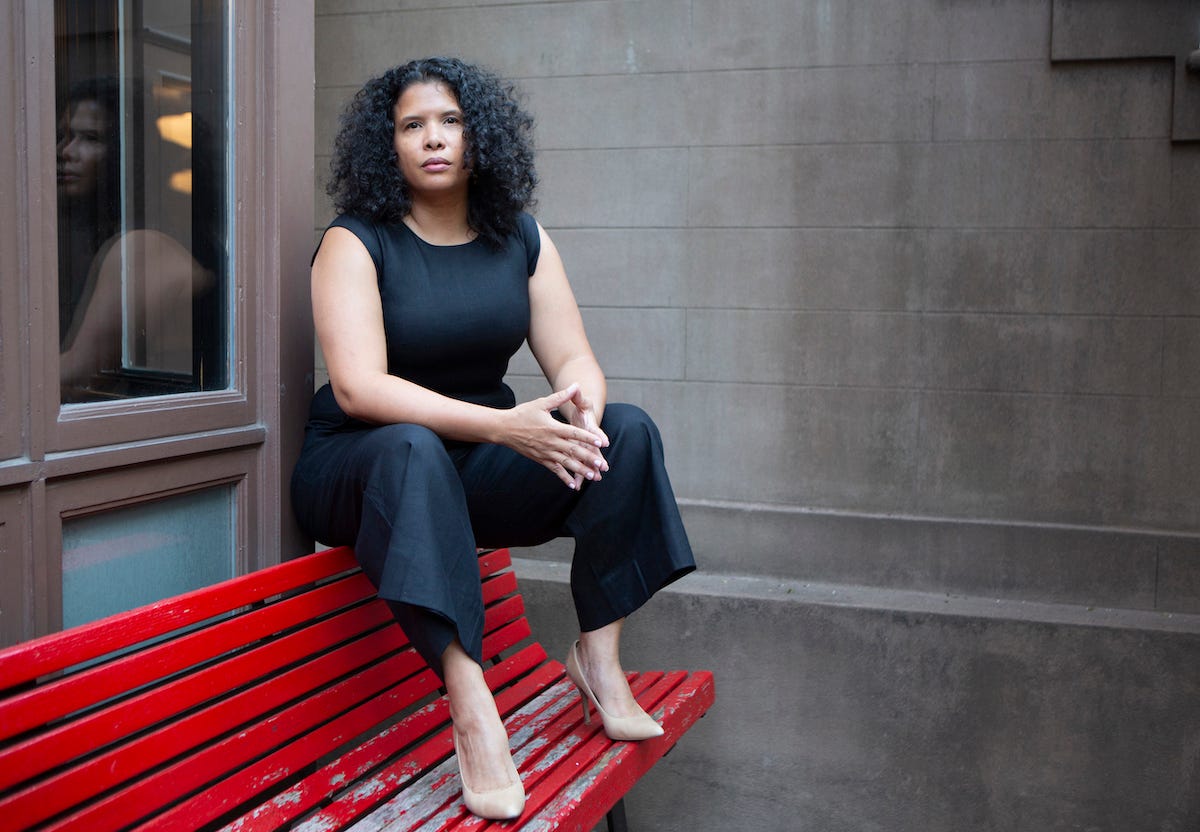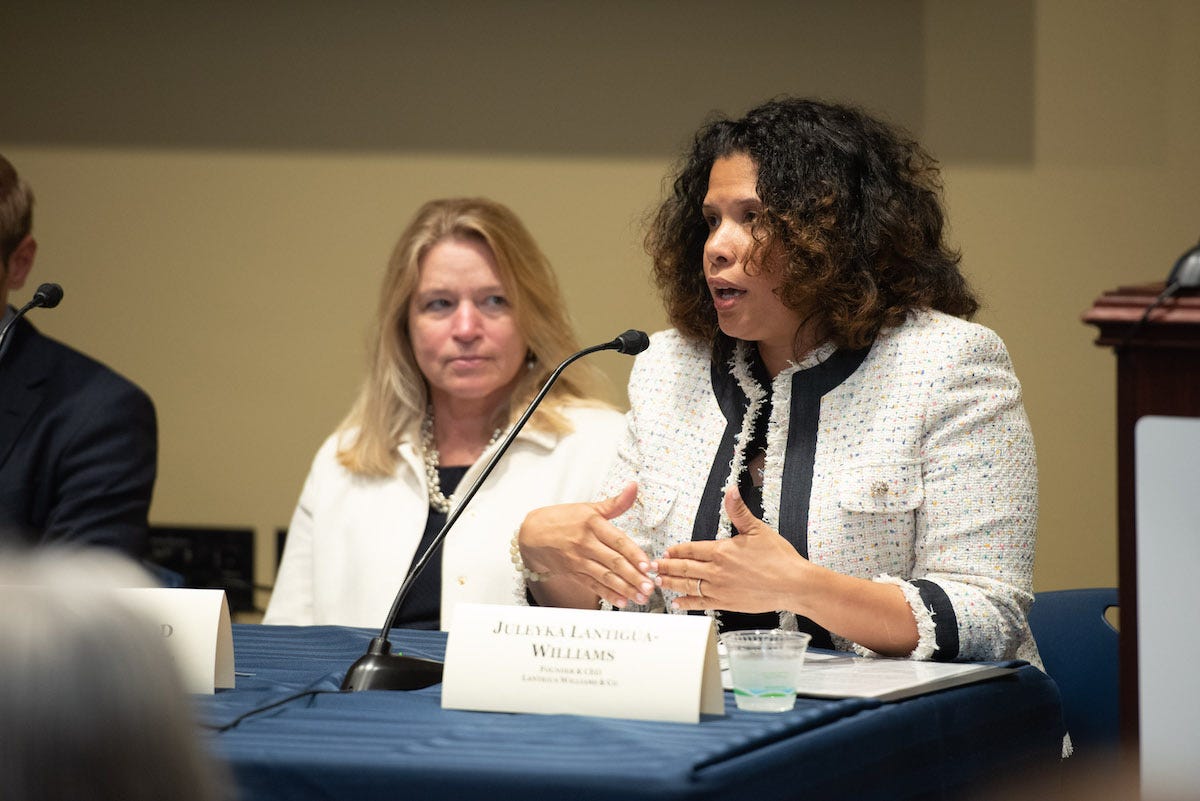New Fund Aims to Change up the Players in the Audio Awards Game

New Fund Aims to Change up the Players in the Audio Awards Game
On Tuesday, March 9, 2021, Lantigua Williams & Co. launched the Podcasting, Seriously Awards Fund, in partnership with AIR and Pacific Content. The fund will support independent BIPOC, queer, and trans audio producers based in Canada or the United States in the process of submitting work to major North American award competitions.
It will cover submission fees for producers, editors, and other creators by reimbursing applications from September to March each year, for shows published within one year of the application date. Individuals can submit up to $200 (US) in awards reimbursement per cycle.
The Podcasting, Seriously Awards Fund is committed to supporting more than 200 award submissions each year, disbursing at least $20,000 (US) annually.
Already fans of the work Latingua Williams & Co. were doing in the industry, especially the knowledge and expertise sharing they do through the Podcasting, Seriously learning platform, Steve Pratt, co-founder of Pacific Content and VP of Podcasting at Rogers, was excited about the opportunity to partner with the awards fund.
“It instantly felt like a perfect fit for our values and an incredibly smart way to help recognize the amazing work of BIPOC, queer, and trans creators. When Juleyka mentioned that having Pacific Content participate (as a Canadian company) would also make the fund international, it was an instant ‘YES!’”
We caught up with Juleyka Latingua-Williams, the founder of Latingua Williams & Co., to find out how this awards fund is another extension of her lifelong commitment to amplifying marginalized voices.
Q: Before starting your own podcasting company, you spent more than two decades working as a journalist. How did you get your start?
A: I have always written. It’s one of the things that has been constant in my life. I wrote really, really bad poetry in high school, but I was also the editor of the yearbook. And then in college, I wrote full-of-gusto opinion pieces in the college paper.
I thought I was going to be a lawyer for most of my life, and then I worked for some lawyers in New York City. It was an exceptional experience but I was spending 16 hours in an office, by myself, doing research. So you do the thing that comes most naturally at that point when you’re at a professional impasse — you move to Japan to teach English.
I was essentially an alien, a true alien, arriving on another planet with its own language, its own customs, and its own way of seeing the world. I had to really look inward and say, “What is the thing that is constant? What is the thing that I go to when I’m happy when I’m sad when I’m lonely when I’m anxious.” And, that was writing.

I got my first job in New York City as the managing editor of this small magazine called Urban Latino. Then, I just kept moving up. [I eventually ended up] at The Atlantic where I got to do work reporting on criminal justice. It was so fulfilling. From there, I was recruited to run Code Switch at NPR and I really fell hard for audio storytelling.
Q: Why did you want to start your own podcasting company?
A: I’d been thinking about starting something on my own. There were all these ideas that I was playing with — always around words, and word makers, and creatives. Then I fell in love with podcasting. I thought this was amazing! All of the tools that I used to tell stories with journalism, I could use to tell stories with sound.
It was a huge risk. I took $40,000 from my 401K. I gave myself a year. I made a plan and made very incremental small goals. I did a bunch of other things, and just hustled, hustled, hustled to keep the company going. I exhaled when we hit year three. Now we have five full-time employees, six if you count me. We’re Peabody-nominated and have incredible collaborators. It’s just been an incredible, incredible ride.

Q: Why has giving voice to those on the margins been such a throughline in your career?
A: I’ve always explained that as the legacy of being the eldest of four [siblings], and having a pseudo-parental role growing up.
I came to America from the Dominican Republic when I was 10. My parents were working multiple jobs. I was the primary caretaker when they were at work. I had to come home, make sure that we locked the door behind us; make sure that everybody did their homework, and make sure we ate the dinner my mom would cook for us in the morning.
It comes very naturally to me to assume the responsibility of making sure that people are well. That they’re doing things they’re happy with. That they are able to perform at their highest level.
There were so many good stories that were not being told. I figured I will never run out of things to report on by seeking out stories that people are ignoring.
Q: We’re going through a reckoning of sorts right now. Newsrooms are continuously talking about inclusion and diversity. What do you make of this moment?
A: It’s fun to watch. I am among the people who were in major newsrooms over the last 20 years saying, “Hey! What about this whole bunch of other people?” I led a desk at the National Journal called Next America. It was a team of reporters who were focused on rising ethnic majorities in the U.S. That team got folded into The Atlantic. I wonder if we had been able to keep going, what stories would we be telling now.
People think that this is theoretical. Still. They have to have theories about how to integrate a newsroom. They have to have theories about how to be more inclusive, rather than representative. To me, there’s no theory. There’s only praxis. There is only hiring and training, and retaining more people. There is only promoting and advancing more people.
Sometimes I just shake my head and then I go back to my work.
Q: You started the Podcasting, Seriously Awards Fund to make submitting to podcasting awards more inclusive. How did this idea come to you?
A: We submit our shows [for various awards] every year, and we’ve been very lucky to have a couple of them shortlisted. I’m usually the one that fills out the forms and makes the payments and uploads the files. And, it’s very expensive.
Last year, I was invited to be a judge on two really big journalism awards [in the audio submissions category]. I don’t want to say which ones. It really opened up my eyes. Now I was on the other side of it. I was seeing the selections. The usual suspects were there: New York Times, ESPN, NPR—all of those people. Then all the mid-level folks — the Reveals of the world, the ProPublica. And, then there was a whole echelon of people, some independent and some in smaller markets who were also submitting their work.
I could name five other shows that would fit into this criteria exactly. And, I wondered why they were not there. After a few months of thinking about it, I realized it’s the price [of entry]. It can be $75 or sometimes $350 to submit your work for consideration.

I approached AIR Media, and [CEO] Ken [Ikeda] took my call, and he agreed. There was a need to create a pathway for independent, BIPOC, queer, and trans producers to be able to have their work considered. So, I put together an advisory board.
Then, literally, the first time Steve [Pratt] and I got on a call, I said, “We are doing this thing. You guys could be in on this.” [Steve] got back to me the next day, and said yes, which was incredible.
Q: Why is it important to have such an initiative?
A: Early in your career, an award nomination can set you apart. It helps when someone is looking at your resume or if you are submitting for a grant. The prestige that comes with the award is useful.
The usual suspects who end up on the shortlist for awards absolutely deserve to be there. But there’s a whole other core of people that also deserve to be there. It reminds me of playing varsity sports. I was on the volleyball team in high school. When I wanted to go out for the team, I had to save money so that I could buy the uniform. I couldn’t get on the floor without the uniform.
To me, the fund is giving everybody a uniform to get on the court and play the game to the best of your abilities. Because the kid who had to save money to buy the uniform became the team captain. So I just feel like if we can do that who knows what kind of leader will emerge. What kind of talent we will unearth. What kind of opportunities and ideas will float to the surface. But you got to give the kid a uniform to get into the game.
*This interview had been edited and condensed for clarity.
Sign up for the Pacific Content Newsletter: audio strategy, analysis, and insight in your inbox. Once a week.
